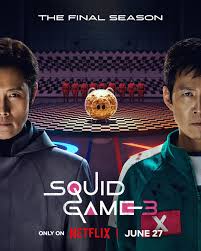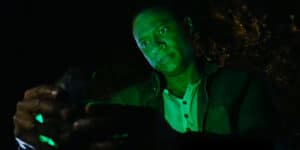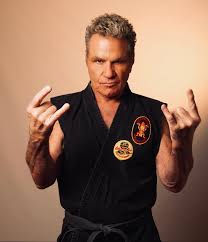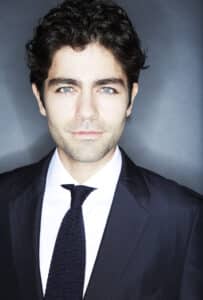Writers sometimes feel that they have lost their creative spark, their golden touch, and that everything they put on paper does not resonate with them. It’s a tricky situation, and some people even give up writing altogether when doubts start roaming over them. But the truth is, writer’s block is a normal occurrence. Some days, it will be easy and creativity will be flowing, while other days, one will need a little help. In this article, I compiled for you five reads that will leave you with an urge to jot down so many thoughts and emotions once you finish them!
Letters To A Young Poet by Rainer Maria Rilke
Photo by Taylor Wright on UnsplashIn Letters to A Young Poet by the poet Rainer Maria Rilke, he writes ten letters responding to a young man who’s bewildered by one question. “Should I write?”
Rilke writes back to this young man and tries to offer him a different perspective on writing in general, a refreshing one. Rilke beautifully crafts these letters. I often found myself re-reading certain lines of them, not only to dissect them better but also to relish his exquisite way with words.
Through his letters, Rilke is far from trying to lecture the young man. He is tenderly offering him pieces of advice as to how to lead a life as an artist. He advises him to allow himself to take his time while being lost, lonely, sad, happy, or nostalgic. He invites him to contemplate these feelings and question them.
Rilke believes that one is not in competition with anyone else in life and that everyone has their own path. They will walk this path whether they want to or not. One might as well be wise enough to listen to what life is trying to whisper to them along the way, even if it seems irrelevant at the time, and take it with grace. One quote by Rilke perfectly sums it up. “Live the questions now. Perhaps you will then gradually, without noticing it, live along some distant day into the answer.”
White Nights by Fyodor Dostoyevsky
Some people say that dreamers do not belong on this earth. Life here might be too cruel and jarring to them. It’s realism could dim their spark.
Dostoevsky’s White Nights is a short story of a young man who night after night wanders the streets of St. Petersburg, hopelessly trying to make sense of his life. He is plagued by his own loneliness, and tormented by his mind until he meets a girl. Their bond quickly grows stronger, and he finds himself falling for her but unfortunately, she has eyes for another.
Reading this book was a sweetly excruciating journey that left me overwhelmed and in need to talk about it, which translated into writing several essays about it. It was that good. Dostoevsky is already known for his ability to capture the nuances of feelings in a hauntingly beautiful way, and this book follows the same pattern.
Masterfully, across a few pages only, he makes the reader live vicariously through the main character. Mindlessly falling in love, the passion he feels, his yearning, his unrequited love, and eventually his soul-crushing heartbreak. It is one of those reads that you will constantly be thinking about in the back of your mind. And you will inevitably find that Dostoevsky has seamlessly managed to put some unexplainable feeling that you’ve experienced at some point in your life, into words.
The Bell Jar by Sylvia Plath
Photo by Priscilla Du Preez 🇨🇦 on Unsplash“Where do I belong?” Some people are luckier than others and can answer this at an early stage of their life, while others can go on for their entire life, trying to find the answer. The journey is not meant to be easy, but it can be extremely rigorous.
In Sylvia Plath’s The Bell Jar, the narrative follows Esther Greenwood. She has a brilliant future ahead of her, her poetry-writing talent secured her a scholarship, and now she is on an internship at a magazine company in New York. Seemingly all is going in her favor. But Esther does not feel the same way. She doesn’t feel like she belongs anywhere or with anyone. Not with her peers at college nor with her partner back home.
The societal expectations start gradually suffocating her as the story progresses. Everyone wants something from her, but nobody is listening to what she wants. Her society makes her feel misunderstood, unvalued, and infuriated, simply for being a woman. This alienation pierces holes in her soul.
This book was Sylvia’s only novel, as she originally only published poetry books. It was published a few weeks before she committed suicide. This novel is considered to be semi-autobiographical, and that explains the palpable rawness across its pages. The reader is inside Esther’s head and gets to experience all the disorientation, frustration, and eventual crumble she suffers.
The enchanting poetic touch of Sylvia is as present as ever in her writing that it is almost beguiling. I could not wrap my head around how agonizingly gorgeous her articulation of that pain was. It even left me with an urge to try my hand at poetry. It is an important read if you need something to cut you open and make you bleed on paper.
When Breath Becomes Air by Paul Kalanithi
Some people argue that not knowing our death date is a blessing, while others disagree and believe that knowing can help us make the most of each breathing moment we have. There is no right or wrong answer to this question. In this book, the neurosurgeon and author Paul Kalanithi, did not know his death date either, but he knew he was dying, as he was diagnosed with stage IV lung cancer. This book was his final gift to the world.
After reading this book, I realized that there is more to it than being merely a memoir to motivate you to live to the fullest. Paul was a brilliant man with a sharp mind who had some valuable knowledge to share. All he acquired throughout his life from experiences, he wanted to share with the world.
He was not trying to portray himself to be a heroic figure who handled all life threw at him unflinchingly. Instead, he was transparent and direct about the emotional damage this diagnosis caused him. It also made him think of the doctor-patient relationship from a totally different perspective now that he is on the other end. However, he tried to appreciate each moment he had with his wife and baby daughter, who was 8 months old when he passed- and urged his wife to continue living after him. It is a story of a remarkable man that is worth knowing and sharing.
The epilogue is written by his wife, Lucy Goddard Kalanithi. And to this day, it is among the most poignant passages I’ve read. It will most likely move you to tears. Regardless, Lucy refuses to minimize him to his death. She says, “What happened to Paul was tragic, but he was not a tragedy.”
On Earth We’re Briefly Gorgeous by Ocean Vuong
Words are powerful, and they can be one’s lifeline. Sometimes, the only way you can truly see someone is through their words. And we all want to be seen and recognized for the person we truly are. Some are lucky to have other means to do that, but others can have only words to describe their kaleidoscopic nature. In On Earth We’re Briefly Gorgeous by Ocean Vuong, Little Dog’s letters to his illiterate mother are the only way for the reader to see him.
Reading this book feels like stumbling across someone’s hidden diary. Little Dog is writing to his mother, conversing with her about life, love, family, war, and identity. He dares to unearth all his secrets because he knows she can never read these letters. This aspect adds a vulnerability to his words. Technically, no one is going to read these letters, so he is allowed to bare his soul to whichever extent he wishes. Only, you too will be reading.
At times, I found myself feeling uneasy for no reason other than how intimate the letters felt. “Am I allowed to read this?” came to mind, which is silly but Vuong’s way with words makes you feel that each word he’s writing is tugging at his heartstrings. As if he himself did not expect that he had all this hurt gnawing at him, which I believe is intentional to immerse the reader in the letters’ theme.
It’s one of those books that will require you to sit after each chapter, contemplating what you’ve just read, and once you finish it, certain quotes will constantly flash in the back of your mind. Vuong manages to narrate extremely personal experiences in a way that could be universally experienced. Everyone could relate to it, however it aligns with their story.
Writing first and foremost should be for yourself. It needs to come from an internal, insatiable need that could only be satisfied by pouring it all into words. However, external sources too can sometimes touch on things that we never realized we had inside of us, and that could be put into words. So allow yourself to absorb any form of writing or knowledge, and let it ignite your creative spark.
For More Great Content
Total Apex is an all-encompassing content producer. We provide heavily detailed articles every day on entertainment, gaming, sports, and so much more! Check out all our great sports content at Total Apex Sports. Check us out on X @TotalApexEandG and our other sites: Total Apex Sports Bets and Total Apex Fantasy Sports.







